Cape Greco (Cyprus). Cape Greco (Cyprus) – Strapped into wetsuits, three researchers prepare to dive into the crystal-clear waters of Cyprus to install corals on a floating nursery, a first-of-its-kind initiative in the Mediterranean aimed at restoring the population affected by global warming and overtourism.
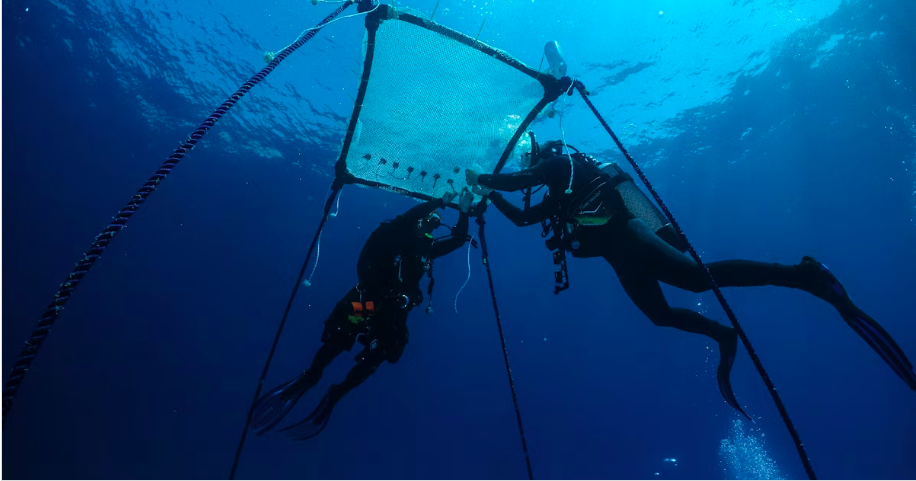
Researchers install a floating coral nursery in Mediterranean waters off Ayia Napa, southeast Cyprus, June 20, 2024.
Off the coast of Ayia Napa, in the south-east of the island, these Cypriots glue fragments of a local species of coral, preserved for several weeks by the Cyprus Department of Fisheries and Marine Research (DFMR), onto numbered sticks.
A few minutes later, they were working at a depth of around five metres on the net of a floating nursery near Cape Greco.
Dr. Louis Hadjioannou, associate researcher at the Cyprus Marine and Maritime Institute (CMMI), responsible for research on Cladocora caespitosa, explains that this Mediterranean coral species has declined in recent years due to climate disruption, and that he wants to restore it.
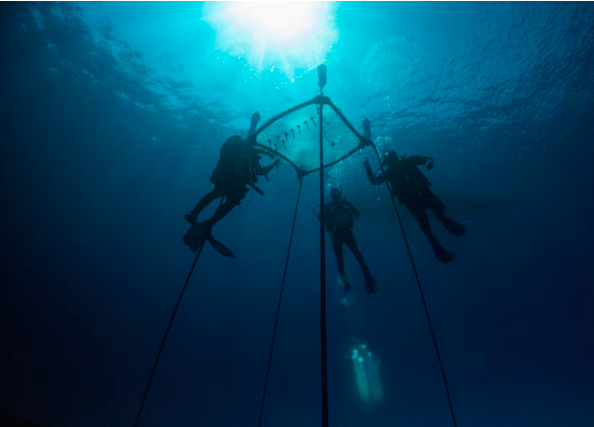
Coral restoration in Cyprus initially involved laying stumps on the rocky seabed, their natural habitat, » explains the 41-year-old scientist. Then an Israeli expert came up with the idea of trying out these floating nurseries, as they keep them away from predators, pathogens and the consequences of unsustainable tourism while they grow.
Cladocora caespitosa can be found in very shallow areas in Cyprus, generally on rocks between zero and four metres deep, and tourists can walk on them, » says the expert.
By floating them (…), we exclude some of the stress factors, » he adds.
- Good results
This is the first pilot study to test floating nurseries in the Mediterranean to assess their effectiveness, » says Hadjioannou.
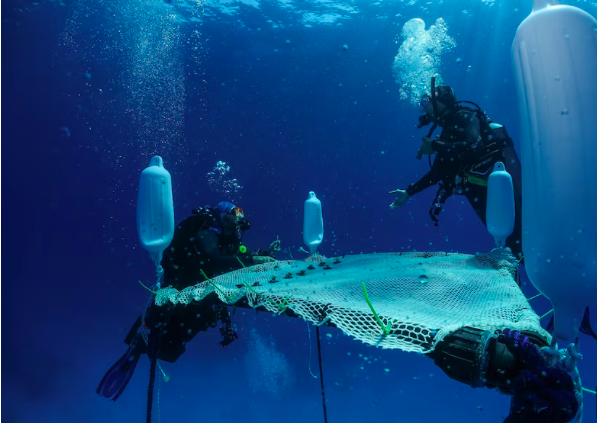
This technique was first used in 2000 in the Red Sea, in the northern Gulf of Eilat, near the Jordanian border, » Professor Buki Rinkevich, from the National Institute of Oceanography in Haifa, Israel, who developed it, tells AFP.
It has been tested around the world, including in Thailand, the Philippines, Mauritius, the Seychelles, Zanzibar, Colombia and Jamaica.
Rinkevich assures us that the floating nurseries have given good results for around a hundred different species of coral.
A total of two structures have been installed in two marine protected areas in Cyprus, at Cape Greco and near the Ayia Napa resort. Their imposing mooring blocks are located at depths of 11 and 17 metres respectively.
At the end of June, ten coral fragments were installed on each floating nursery and will be analyzed every month or two to check their condition.
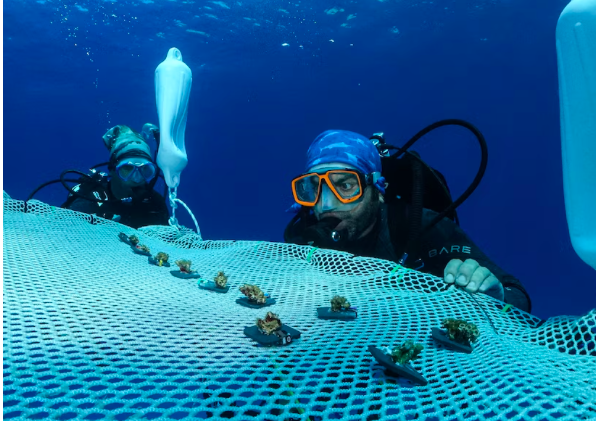
The aim is to implant at least a hundred on each nursery for this case study, » says Louis Hadjioannou.
In a year’s time, we’ll know whether the corals are doing well or not, and if they are, the scientist hopes, we’ll collect the fragments and transplant them onto natural reefs.
- Large bioconstructions –
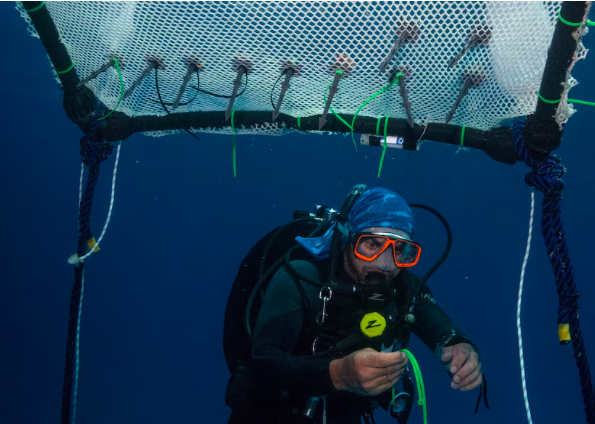
This experiment is part of the EFFECTIVE project, launched last year and funded by the European Union, which aims to restore the Mediterranean’s natural capital, explains Manos Moraitis, 36, a biologist and research associate at CMMI, to AFP.
Coral reefs are among the richest ecosystems on the planet. Biotopes for numerous species, they are guarantors of biodiversity, but highly sensitive to environmental change.
Cyprus’ marine ecosystems are threatened by climate change, mass tourism, coastal development and agricultural pollution.
In 2015, after a heat wave, 30 to 40% of the corals that Cypriot researchers were studying partially died, says Dr Hadjioannou.
As the climate crisis worsens (…), an even higher percentage of living coral tissue will die, he assures.
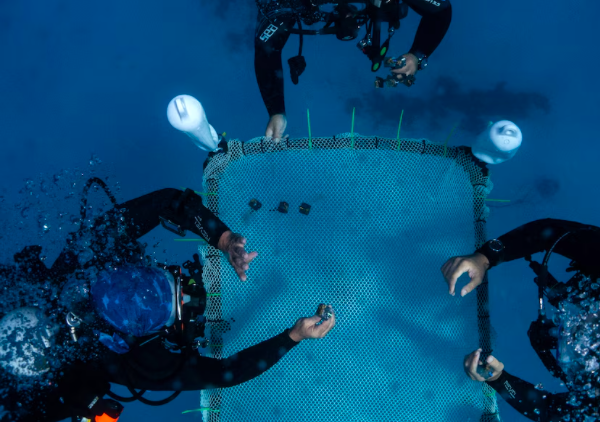
Cladocora caespitosa is a very important species in the Mediterranean, he says, as it is capable of building large bioconstructions, similar to those found on tropical reefs.
If the experiment proves successful, he says, the aim is to try and replicate these coral nurseries in other parts of the Mediterranean, and to deploy more of them in Cyprus.
Source: L’express

